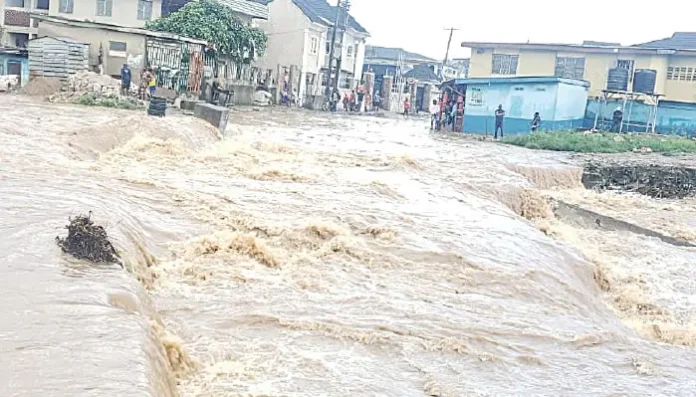BY AWELE OGBOGU
A visually impaired Deltan, Mr. Ofili Nkemakonam has embarked on an advocacy for the protection of Persons With Disabilities (PWDs), as cases of extreme flooding continue to threaten lives and properties across the country.
Ofili, a staff of the Delta State Ministry of Information described himself as a strong advocate for social inclusion and the rights of Persons With Disabilities.
He said “the recent flood alert issued by the Federal Government of Nigeria has placed 11 states, including Delta State, on high alert for possible flooding. As the rains intensify and rivers overflow, we must ensure that no one is left behind, especially persons with disabilities. In times like these, inclusion is not just important, but is a matter of survival.”
“Every year, floods destroy homes, displace families, and threaten lives across Nigeria. But while everyone is affected, persons with disabilities often face greater risks. Many lack access to information, evacuation support, or basic relief items that meet their needs.”
He noted that “the Nigerian Meteorological Agency and the Nigeria Hydrological Services Agency have both warned that this year’s floods could be severe. With Delta State among the areas likely to be affected, this is the time to plan and act in ways that include and protect our most vulnerable citizens.
“Being prepared means thinking ahead, and that includes making sure persons with disabilities are not forgotten. People who are blind, deaf or who use wheel chairs, or have other challenges must be part of the planning process.
“Government agencies should work closely with disability organizations and community leaders to map out where persons with disabilities live and what they might need in an emergency. Flood warnings should be shared in simple language, in formats that everyone can understand—spoken messages, text messages, sign language on television and community radio announcements in local languages.
“All over the world, countries that take disability inclusion seriously have shown better results during disasters. For example, in Japan and the Philippines, communities train volunteers to help persons with disabilities evacuate early. They also make sure emergency shelters and communication tools are designed with everyone in mind.”
He proposed that “Delta State can learn from these examples by keeping a register of persons with disabilities living in high-risk areas, making sure emergency drills include people with different types of disabilities. Providing flood survival kits that include mobility aids, assistive devices and personal care supplies.”
“Evacuating quickly is hard enough. For someone with a disability, it can be nearly impossible without help. Narrow or muddy roads, lack of wheelchairs, poor signage and limited communication can turn a flood into a life-threatening situation.
“At the same time, many emergency shelters are not built for accessibility. For example, a deaf person may not get important updates. A blind person may find it difficult to move around. Toilets and sleeping areas may not be suitable for wheelchair users or the elderly. These are not minor issues, but serious barriers to safety and dignity.
“If a person with a disability makes it safely to a shelter, they should find comfort, not more challenges. Camps should have ramps, wide entrance and clean, accessible toilets. lighting and visual guides should be provided for people with low vision or hearing loss, while caregivers or trained volunteers should be there to help those who need support.”
“Bring everyone on board. Disability groups, government agencies and local leaders should meet now to plan a coordinated response. Spread the word in every way. Use every possible method, radio, text, loudspeakers and town crier to make sure people with disabilities get early warnings. Rescue teams and volunteers need to know how to assist persons with disabilities safely and respectfully”, he said.


